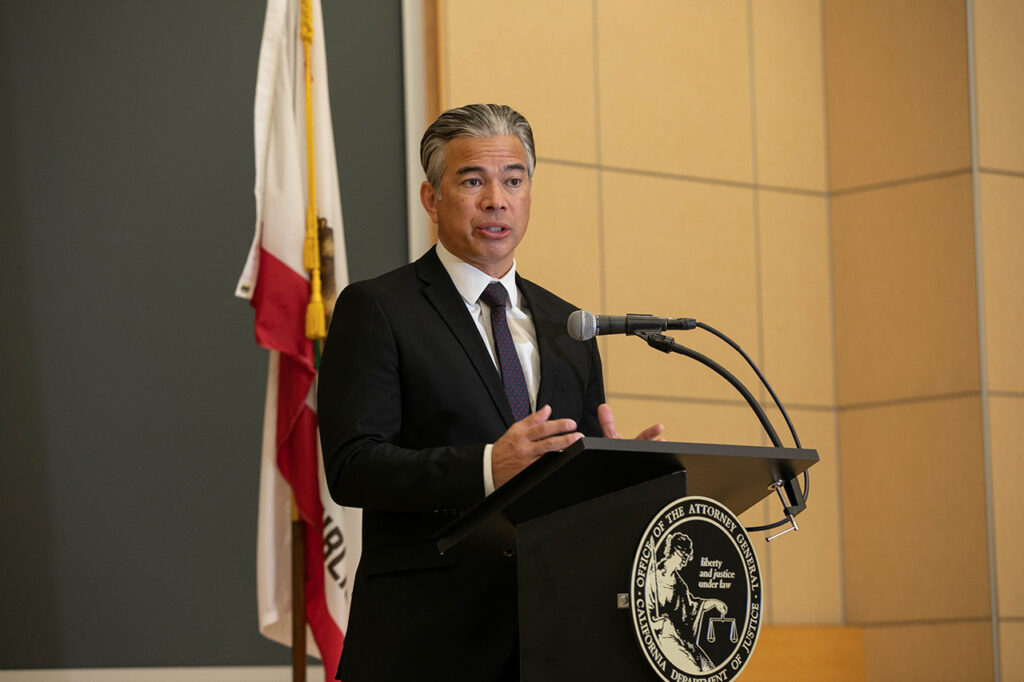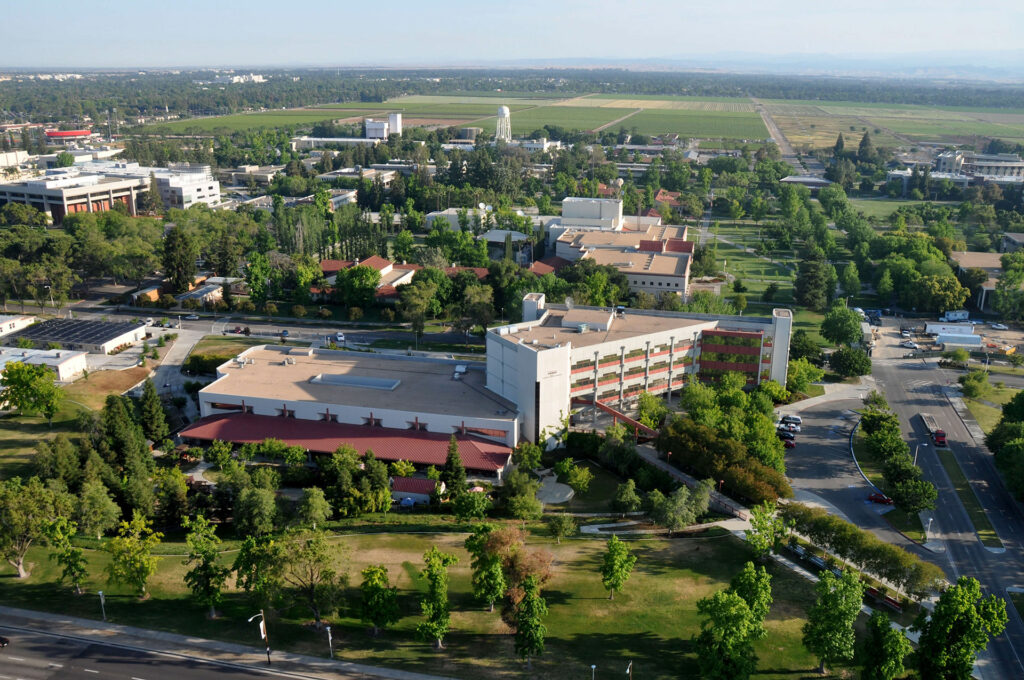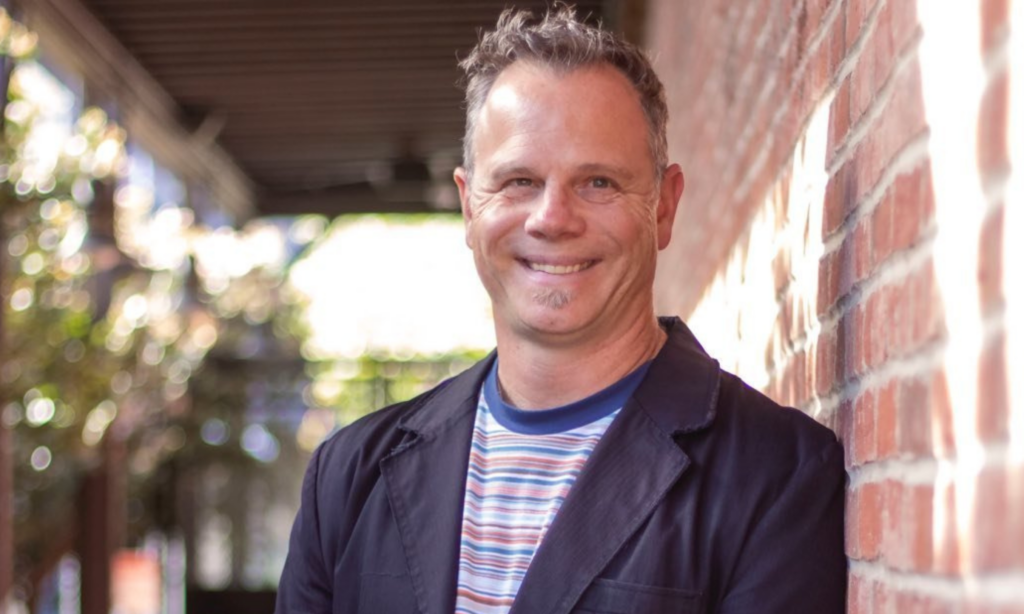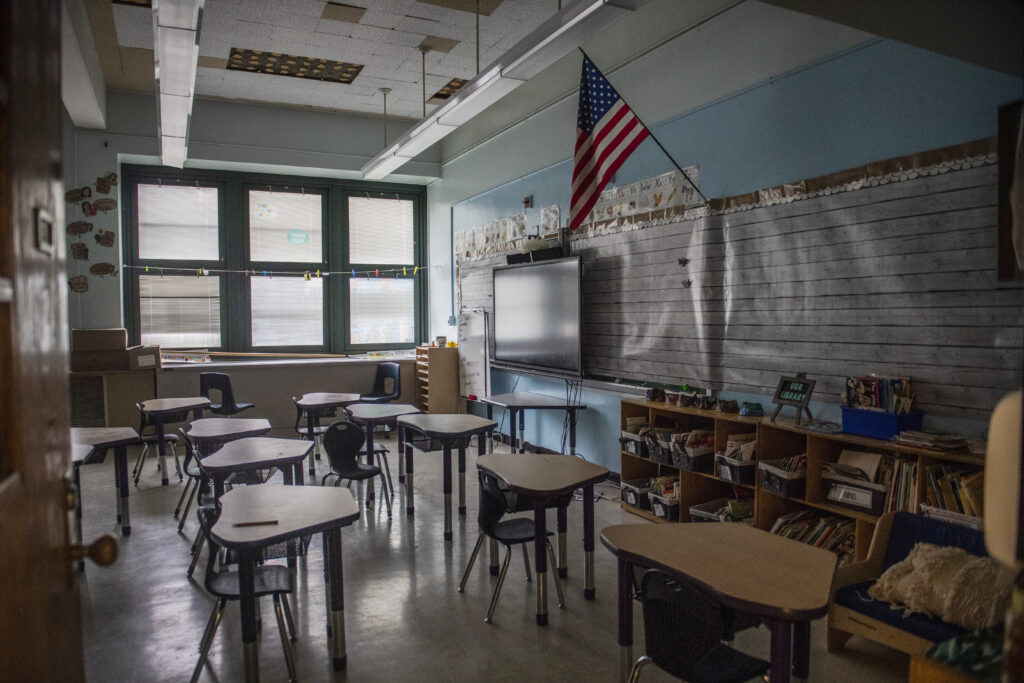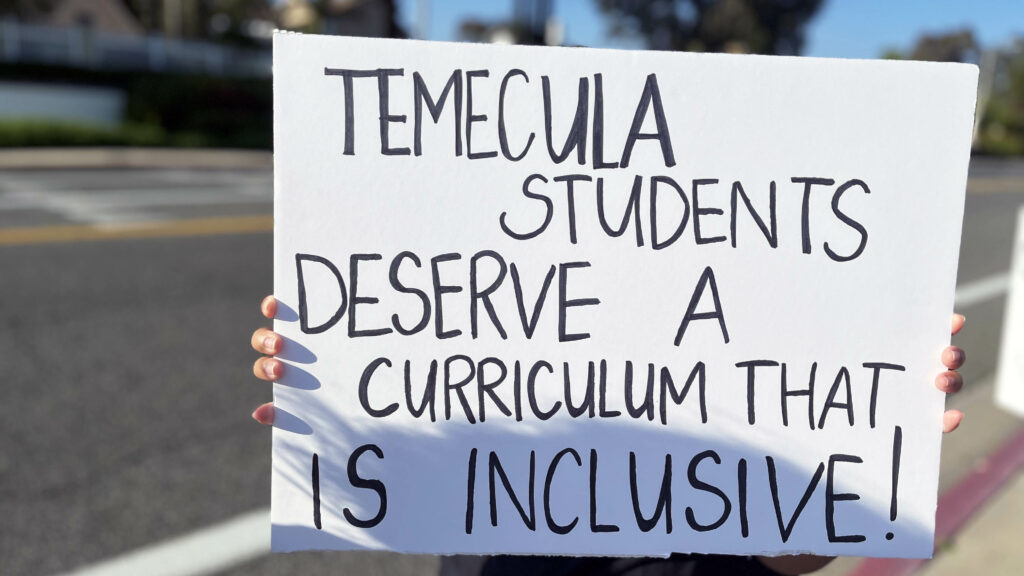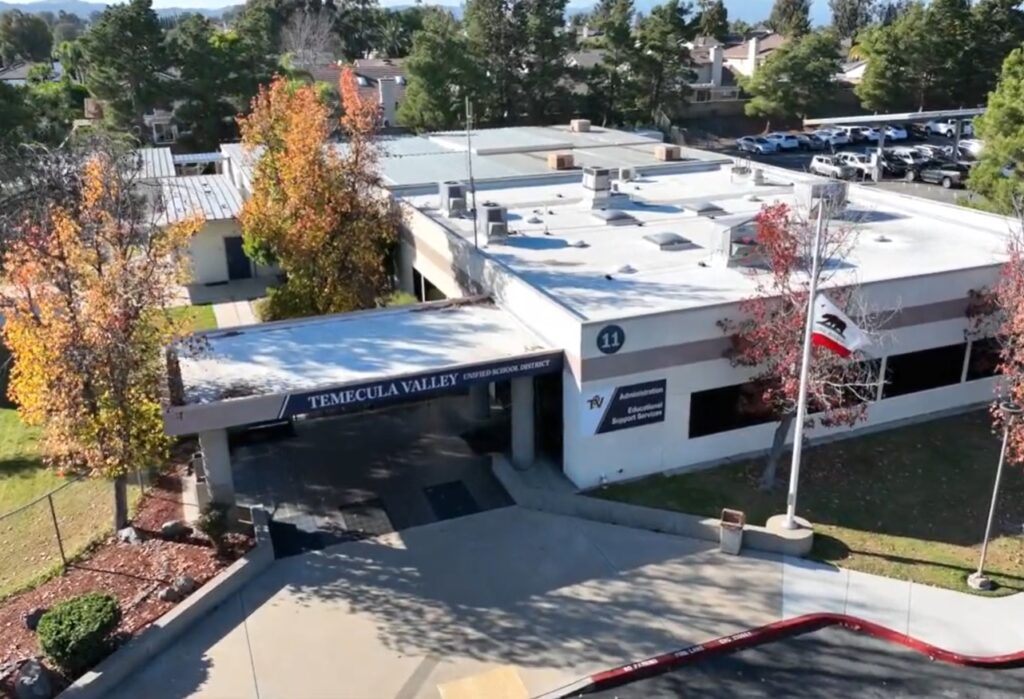
Cadet medics simulate taking a patient into a helicopter during an NVMI Summer Camp.
Credit: Courtesy of Mark Ryan
The North Valley Military Institute — a grades six-12 charter school founded in 2013 — voluntarily surrendered its charter and closed its doors permanently on Aug. 25, leaving nearly 800 students and 180 employees in the Los Angeles area without a place to learn and work.
Both NVMI officials and community activists who called for the school’s shutdown have said the closure was months in the making.
Officials of the charter school blame the closing on accommodation problems as NVMI relied on space at several LAUSD campuses. They told EdSource that their decision to surrender the charter at the Aug. 25 meeting — where five of its 10 board members also resigned — resulted from the school’s inability to secure a single, permanent campus location.
Community advocates, however, cited a long history of problems, including letters from the Los Angeles County Office of Education detailing alleged misappropriation of funds, unqualified teachers and insufficient services for students with disabilities. The advocates have also pointed to poor standardized test scores and academic performance plus widespread written complaints of bullying and sexual assaults in the school.
Community advocates who have called for NVMI’s closure over several years have also blamed the Los Angeles County Office of Education for having permitted the charter to continue operating, despite all the allegations. But LACOE spokesperson Van Nguyen said in a statement to EdSource that the county office is “committed to upholding accountability, quality education and maintaining a high standard of financial responsibility among educational institutions within our community.”
Nguyen also said in a later email that the North Valley Military Institute is one of 15 charter schools authorized by the county office of education since 1997 that has been “revoked, non-renewed, terminated and self-closed.” Only 25 of the 40 charter schools remain open.
It was not until Aug. 17 — four days before the charter school was scheduled to start the new year — that parents were notified via email that the school would be closed, but only for the 2023-24 academic year.
“As the captain of the NVMI ship, I am responsible for everything that happens or fails to happen here, and ultimately, I am singularly responsible for not being able to overcome the challenges that we have faced,” said NVMI’s superintendent, Mark Ryan, in the email to parents. “An apology is so inadequate, but I am sincerely sorry for not being able to get us over the finish line and operate this school year.”
More than 95% of students enrolled at NVMI are from underrepresented minorities, the bulk of whom are Hispanic or Latino, according to state enrollment data.
Ryan said most of the charter school’s students will not be able to attend other schools — including ones they may have previously attended — because they have been suspended, expelled or have been in juvenile hall.
Many expressed concern about how the students would fare in a different school setting.
“They pride themselves with serving students that are at risk,” said Carl Petersen, a community activist. “And … I’m afraid those kids are going to fall through the cracks.”
Despite concerns that not every student will find a school that will take them, NVMI hosted an enrollment and deployment fair for students and their families to help them determine the next steps.
More than 25 schools, as well as LAUSD representatives, attended the event, Ryan said. The previous Tuesday, Aug. 15, NVMI held a virtual version of the event for those who were unable to attend in person.
“We want to help! Los Angeles Unified has reached out on multiple occasions to support all families and students,” according to a statement released by the district on Aug. 18.
“Given the school year has started for many students, the district reiterates our readiness to collaborate with families to ensure their children are in school immediately, and we call upon NVMI to do the same.”
On Aug. 22 — several days before NVMI surrendered its charter and five days after parents were notified — the Los Angeles County Office of Education, which issued NVMI’s charter, sent a “notice of concern” to Ryan, Daniel Villanueva, the board’s chairperson and the rest of the board about the charter school’s noncompliance with both its memorandum of understanding with the county office of education and state law.
The letter specifically states that NVMI’s vote to shut down may have violated the memorandum of understanding between the LA County Office of Education and NVMI, which states the charter would remain effective even if the school becomes non-operational and until the school completes the mandated closure procedures.
It also stated that the agenda for the Aug. 25 special meeting was not provided with adequate notice under the Brown Act — which requires school boards to publicly an agenda for special meetings 24 hours ahead of the meeting time — and claimed that the Spanish translations “may not have accurately conveyed the intended meaning.”
“We feel it is important to update NVMI concerning future advanced appointments for its school,” the letter reads. “Based on the action taken by NVMI’s Board, NVMI will not receive any further advanced apportionments for the 2023-24 school year, pursuant to a directive provided by the California Department of Education.”
Abysmal academic performance
During the 2021-2022 academic year, based on the Smarter Balanced Summative Assessments, only 15.81% of NVMI students across all grade levels met or exceeded state standards in English language arts, while only 3.22% met or exceeded math standards. In science, 4.17% of NVMI students met or exceeded state standards, based on the California Science Test.
Previously, in the 2013-14 academic year, the year the school opened, NVMI did not have any reportable SAT scores because of the low number of students who completed the exam, according to staff findings on the North Valley Military Institute College Preparatory Academy.
In 2015-16, the same staff findings revealed that the average SAT score for NVMI students was 1,235 on a 2,400 point scale — below LAUSD, county and state averages. Only 11.1% of NVMI students tested above the median score.
No students at NVMI completed AP exams during the 2013-14 and 2014-15 academic years. In the 2015-16 academic year, 13 students took AP exams, but none passed with a 3, the staff findings show.
Ryan said this is largely because the students who come to NVMI are already years behind their peers but that the school had a number of academic supports for students, resulting in about 90% of its students successfully completing a college course before graduating.
“I would love to improve standardized test scores,” Ryan said. “But I do think that there are these other, you know, metrics that you can point to: the number of kids who are successfully completing A through G requirements, the number of kids who successfully graduate. You know, those are very, very important metrics that, ultimately, are much more important for a kid’s adult life than whether or not they did well on a standardized test.”
Staffing concerns
In a Dec. 1, 2022, letter from the LA County Office of Education to Ryan, Villanueva and the school board outlined a series of violations of the law and the Memorandum of Understanding under which the charter operates. Among the violations was an allegation that the school failed to provide evidence of 11 teachers’ credentials.
“For 10 of these staff members, it could not be determined if they held any California teaching credential or English Language Authorization,” the letter continued.
It also noted that seven teachers did not have the correct credentials; one had an expired credential, and six did not have the correct EL authorizations.
The letter states that NVMI was notified of the concerns on Oct. 5 of the concerns, but that it failed to resolve them as of Dec.1.
Ryan attributed the problem to a hardship in finding teachers. “Everybody, this most recent school year, struggled with finding fully credentialed teachers to teach in every single classroom, and NVMI was no exception.”
But were the people the school hired qualified to teach? Ryan explained, “We absolutely struggled to find people that were fully credentialed. But … when we found somebody that we thought would be a good teacher — who had at least a bachelor’s degree, who had demonstrated basics … so that they would qualify for the equivalent of an emergency credential — we did hire multiple people in that situation.”
Inadequate support for students with disabilities
The Los Angeles County Office of Education also stated in the letter detailing a series of concerns about the school’s operations that 37 special education students at NVMI had overdue individualized education program meetings — and that there were “15 students with a total of 1,240 minutes of owed services.”
Ryan said in response, that yes, NVMI occasionally had overdue IEPs or owed services, but not currently. “As of June 2023, when the most recent school year ended, there were no overdue IEPs and no owed service minutes.”
Allegations of bullying and vandalism
In a series of written complaints, community members alleged that there was widespread harassment and vandalism from NVMI students toward members of their host campuses, particularly the VOCES campus.
NVMI “is a school that has subjected the communities in which it has tried to operate to chaos over the last year in particular,” alleged Hans Johnson, the president of East Area Progressive Democrats, which has called for action against the charter for years. “The pattern of misconduct … and neglect of its students … is extremely disturbing.”
On Dec. 17, 2022, German Gurrola, the co-location coordinator at VOCES Magnet, wrote an email to county office of education officials detailing a series of incidents involving alleged harassment— a couple of which were against students with special needs.
They ranged from verbal harassment to throwing trash to cases where NVMI allegedly threatened to take over shared spaces.
“We tried really hard to not purposely, to not intermingle with the Valley Oaks Center for Enriched Studies’ community, not because we were trying to be separatist, but because we knew from co-location stories,” Ryan said in response, adding that students at both schools were “equally guilty.”
“In every case where anything was ever reported to us, or we became aware of anything, even if it wasn’t reported to us, we [took] appropriate disciplinary action … and it’s not a fair statement to say that we somehow encouraged it.”
Gurrola’s email said he was only aware of one incident where a VOCES student was involved, but that the student had been a previous NVMI student.
“There is constant harassment by NVMI students towards our students and staff, including harassment by NVMI staff,” the email alleged. “This is creating a climate that affects our socio-emotional learning environment and places undue stress on our students, staff and families.”
A separate 2017 lawsuit alleged that NVMI students were victims of sexual abuse perpetrated by the school, LAUSD and Brice Tschappat, an administrator hired to assist with the annual summer camp. The lawsuit also argued that LAUSD, which supervised and oversaw the charter at the time, allowed the sexual abuse of NVMI students.
The sexual abuse accusations include alleged exposure to sexual language and pornographic images and a claim that an NVMI administrator “assaulted and battered at least one of the minor plaintiffs.”
Alleged misappropriation of funds
On March 7, the county office requested an audit of NVMI, which is still in progress, according to Nguyen. The county office did not, however, respond to questions about whether NVMI complied with the audit.
“Based on our review of receipts and internal documents of NVMI’s recent leadership retreat, there is reason to believe that fraud, misappropriation of funds, or other illegal fiscal practices may have occurred,” the audit request reads, stating that the school “mismanaged and misappropriated” $90,000 of public funds to conduct a leadership retreat in Las Vegas.
The letter also cites an internal staff bulletin that promises NVMI staff fully paid daytime family activities — ranging from bowling to trips to a water park — as well as group tickets to the “Tournament of Kings” show and “America’s Got Talent,” among others.
A Dec. 8, 2022, email from Ryan to the county office of education admitted that NVMI “used one-time ESSER dollars for the staff well-being activities,” and that non-employees attended the events as well.
The request letter further alleges that Local Control Funding Formula money was used to serve breakfast — with $2,300 being incurred by non-employees — and demanded that NVMI provide a complete list of its expenditures from the retreat.
Ryan explained that the retreat was necessary for staff and that they spent most of the time at the retreat working.
“This was a very sincere working retreat, where 100% of the people who were in attendance can attest … that this was not just some, you know, some junkets to Vegas for people to go gamble and enjoy themselves. This … was absolutely hard work.”
Looking back
Support for the charter has waxed and waned over the charter’s decade of existence, Ryan said, adding that several community members expressed apprehension about having a military academy in Los Angeles.
“This school has served a very special niche,” Ryan said. “There is a population of kids who have simply not been successful in traditional public or private schools, kids who have been suspended, expelled, justice-involved youth, foster youth, homeless youth, kids with significant learning differences … for whom the traditional special education programs have not worked.”
“This school was founded on the premise that military structure … and culture could really provide a place where students who haven’t necessarily been successful in other places, where they could be successful.”
For eight years, NVMI administrators have relied on LAUSD campuses to house their school, Ryan said. And each year, they would have to go through a process outlined by Proposition 39, under which LAUSD would offer NVMI a space to locate the charter, usually within the campus of another school.
Toward the end of the 2021-22 academic year, LAUSD made an offer that would place NVMI on two district campuses. NVMI filed a lawsuit against the district in response, alleging that the offer was illegal and that the charter school could have been housed on a single campus, Ryan said.
The complaint accused LAUSD of “splitting our campus, upsetting the military culture of the school, causing us financial challenges, causing us operational challenges.”
LAUSD declined to comment on the multisite offer or lawsuit.
Ryan said he eventually convinced NVMI’s school board to accept LAUSD’s offer and do their best to operate on multiple campuses. During the split-campus operations, NVMI started each day with a gathering of all NVMI students at the VOCES campus in order to be able to engage in military formation, before busing students to the other locations for the rest of the school day.
In the spring of 2022, Ryan said LASUD came back with their 2023-24 campus site offer that would require NVMI to operate its school from four different campuses, including three LAUSD campuses.
NVMI’s board knew that a lawsuit would be costly, Ryan said, adding that they were “dipping significantly into our financial reserves” that had accumulated to nearly $3.8 million.
“At that point, because we knew we had burned through so much of the reserve … I recommended to my board there’s just no way we can do this. We simply cannot operate another year the way that we operated in ’22-23,” Ryan said. “We went through way too much money, killed staff who were working terribly hard to be able to make this very complex operational plan come to fruition, and it was difficult on families. It was difficult on kids, and it was financially simply not sustainable.”
As a result, the board made a decision this spring to suspend only the middle school for the 2023-24 academic year.
Meanwhile, Ryan said the school board realized on July 5 that they didn’t have a campus site. In negotiations, they agreed to lease a five-story building from the Foursquare Church, costing the school $60,000 monthly. Rent at the LAUSD campuses, by comparison, was significantly lower, totaling more than $73,000, according to Ryan.
Ryan said they submitted “a material revision” to the LA County Office of Education that would have amended the charter with the updated church location.
“Almost immediately, there was more upheaval, and there was an outcry that, ‘Well, gee, you know, this is a public school … giving public money to a church,’” Ryan said.
The city of Los Angeles said a public school could operate on the church site but that acquiring the necessary change of use permit could take years. These promises from the city, Ryan noted, were made verbally and not in writing.
Ultimately, Villanueva, the school board’s chairperson, said deciding to close the school was the “biggest disappointment” of his life.
“Our heart was always full,” Villanueva said. “{We thought): ‘Let’s give this one more try … to literally not only turn every stone but every pebble and every grain of sand in our house up until last week.’”

